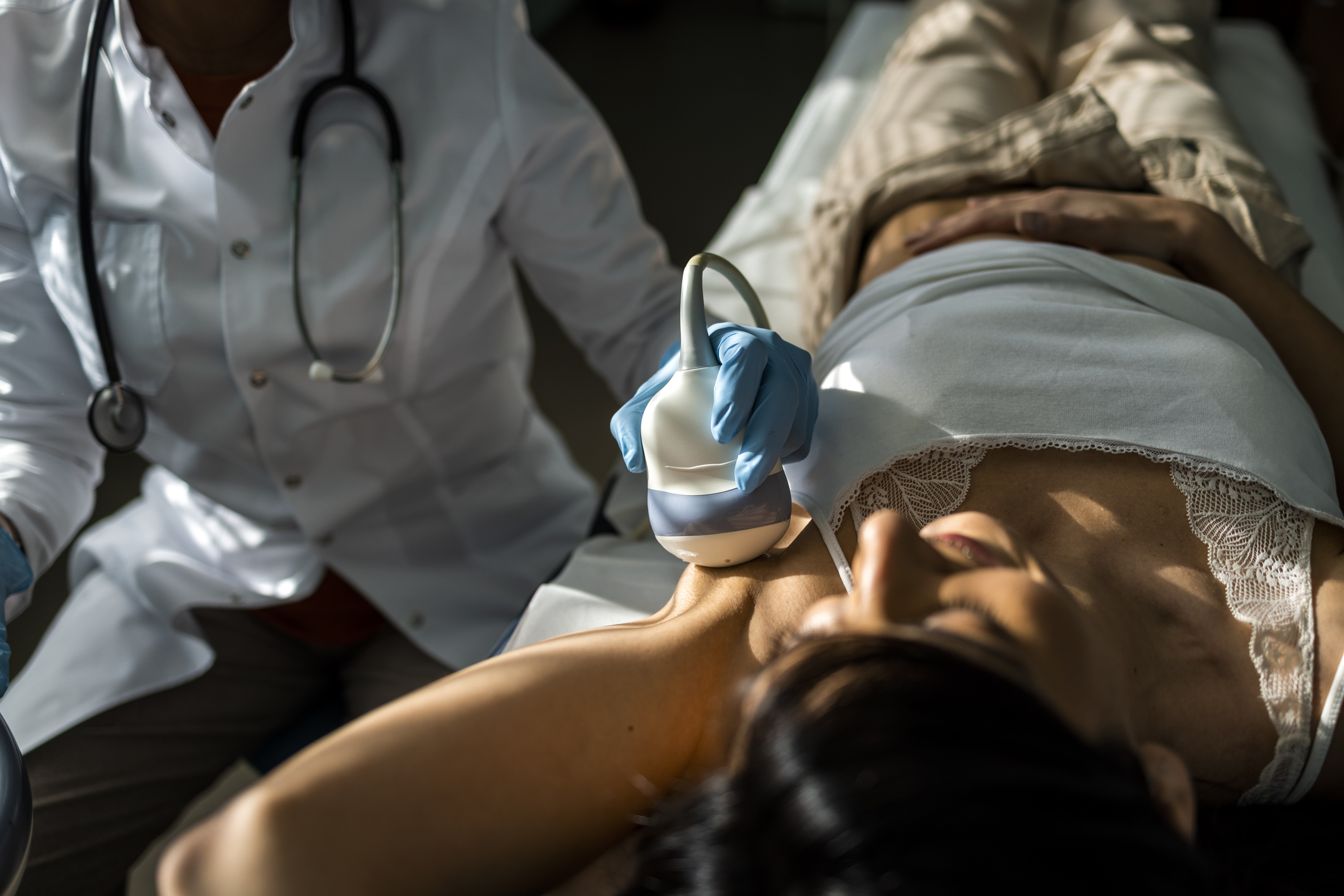Breast cancer is one of the most common cancers in women. WMCHealth cares about this community—and we’re dedicated to providing a comprehensive breast cancer care program for women across the region and beyond. As an academic medical center, WMCHealth has doctors at the forefront of advanced technologies and breast cancer treatments. Our breast cancer center offers a high-risk program dedicated to preventive care for women who are considered at high risk of developing the disease.
What Is Breast Cancer?
Breast cancer occurs when breast cells multiply uncontrollably and form a tumor. Sometimes, the cancer does not spread, but about 80% of breast cancer cases are invasive, meaning the cancer can spread to other areas of the body.
Types of breast cancer are determined by which breast cells have become cancerous. The two most common types are:
- Ductal carcinoma
- Lobular carcinoma
Breast cancer usually affects women aged 50 or older, but it can also affect younger women and men.
Symptoms of Breast Cancer
Breast cancer can affect you in different ways. Some of the symptoms are distinctive while others may not be noticeable. If you do experience symptoms, they may include:
- Inverted nipple
- Nipple discharge
- Pain in an area of the breast
- Change in size or shape of the breast
- A new lump in the breast or the armpit
- Peeling, scaly, or flaking of the skin on the breast
- Dimpled skin of the breast resembling that of an orange peel

Diagnosing Breast Cancer
Westchester Medical Center’s breast imaging center specialists use a variety of technologies to detect breast lumps and diagnose cancer. The services available include:
- Breast magnetic resonance imaging (MRI)
- 3D Mammography
- Sonohysterograms
- Breast ultrasounds
- Bone density testing
- Low-dose digital mammograms
- Ultrasound-guided and stereotactic-guided breast biopsies
If cancer is diagnosed, your doctor will run further tests to determine the stage. This will be used as a guide for which treatment course may be best for you.
Causes of Breast Cancer
Experts know that breast cancer occurs when breast cells mutate and begin to divide and create tumors. What exactly triggers the mutation is not clear, but some risk factors have been identified that may increase the chances of developing breast cancer. Some include:
- Age (50+)
- Obesity
- Family history
- Radiation therapy
- Genetic mutations
- Dense breast tissue
- Alcohol consumption
- Hormone replacement therapy
Treatment for Breast Cancer

A cancer treatment plan depends on the stage of the cancer and its location. Breast cancer treatment decisions can be highly personal, and patients and doctors work together to ensure the best path forward to achieve optimal health and cosmetic goals. That’s why breast-conserving therapy is the most common approach to breast cancer treatment. This means that doctors aim to preserve as much of the breast as possible while removing the cancer. Often combined with treatments such as radiation and chemotherapy, the goal of breast-conserving surgery is the same as with a full mastectomy: a high survival rate and low rate of recurrence.
WMCHealth’s Breast Cancer Treatment Center has a surgical team of specialists who can perform a variety of breast surgery, including:
- Lumpectomy
- Total mastectomy
- Partial mastectomy (lumpectomy)
- Radical mastectomy
- Skin-sparing mastectomy
- Nipple-sparing mastectomy
- Sentinel lymph node biopsy
- Modified radical mastectomy
After surgery, people with breast cancer most likely have other treatments, including:
- Chemotherapy
- Immunotherapy
- Radiation therapy
- Hormone therapy
People undergoing breast cancer surgery may choose to have plastic surgery to reconstruct the breast. WMCHealth offers a variety of plastic and reconstructive surgery options including:
- Oncoplastic surgery
- LATIS (Latissimus Dorsi) flap technique
- Tissue expander and implant placement
- DIEP (Deep Inferior Epigastric Perforators) flap technique
- TRAM (Transverse Rectus Abdominis Myocutaneous) flap technique
At WMCHealth, we understand that choices around breast cancer treatment and reconstructive surgery are deeply personal. We offer compassionate care and highly skilled experts to guide you through your options to offer the best possible course on your recovery journey.
Experts in Breast Cancer Care
Our top doctors in breast cancer care lead with compassion and have access to the most innovative technology.
